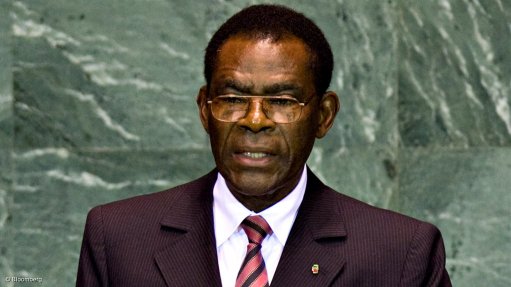South African industry has what it takes for nuclear localisation, says Russian group
Russian nuclear group Rosatom is confident that South African industry can meet the challenges of localising significant proportions of proposed future nuclear power plants (NPPs). “South Africa is ready for localisation,” affirms Rosatom International Business Department Head Nikolay Drozdov. “We have made the calculations and we made the presentations during the Vendors Parade last October.” (The Vendors Parade was a process by which the companies competing for the new NPP programme made detailed presentations to high ranking South African officials about their offers, including localisation proposals. Each company had its own event.)
“South Africa has a long history of operating nuclear plants. It has a power plant and a research reactor,” he points out. “And you don’t need to be a specialised nuclear supplier to supply many parts for [the non-nuclear sections] of an NPP – for example, pumps, piping, cooling towers. Many South African companies have a good record in producing these.”
Localisation Rosatom is of the view that South Africa could reach a localisation level of 60% for the seventh and eighth units (which would form the fourth and last NPP, assuming that South Africa retains the target of 9.6 GW of nuclear electricity and chooses a reactor design with an output of 1 200 MWe, like Rosatom’s VVER-1200). “South Africa’s technical capabilities are not an issue,” he assures. But local companies have to be prepared to take on the nuclear aspects of the project as well. “The management of South African companies must be proactive, take some risk and be ready for the programme.”
Localisation will be made easier, he argues, if South Africa choses a single vendor to supply all its projected NPPs. That would ensure that South African companies that invested in localisation would get the large orders they would need to make their efforts worthwhile.
“There is huge potential to develop cooperative solutions for the energy sector, especially in nuclear power,” he affirmed. “Russia believes that the advantage it would deliver to South Africa extends well beyond individual units (though, with advanced technologies) to the development of the entire nuclear industry of the country – from the extraction of raw materials, construction of nuclear power plants and research reactors to the future design and manufacture of South Africa’s own nuclear power equipment. “For us, it is about facilitating a sustainable nuclear industry in our client markets and our track record of design, implementation and innovative funding models therefore also puts priority on local skills transfer.”
As for the structuring of the proposed programme, “[f]rom our analysis of the South African market, we think the best option is an EPC [Engineering, Procurement and Construction] contract with [Russian] State financing,” he reports. “South Africa wants to organise deep levels of localisation. “Sometimes, from a business point of view, localisation is not the best option. “But an EPC contract creates opportunities for a lot of localisation. We’d construct the nuclear power plant, sharing responsibility with local partners and international partners (as required by the contract). An EPC would mean that we would be the principal constructor.”
Partner CompaniesRosatom started the process of finding possible South African partner companies back in 2013 at the Atomex Africa conference. Some 200 local companies were invited to attend. This was only the start of the process, which has continued. “We’ll probably sign some preliminary documents, such as memorandums of understanding with some possible partners, before the building starts.”
Regarding any possible international partners, the Russian group has lots of experience in working with other major groups. “Rosatom has a high level of cooperation with French companies,” he cites. “We have a joint venture with Alstom. We also have good experience [in terms of] cooperation with Areva regarding instrument and control systems – and with other companies, too, like Siemens. They could also be involved in the South African programme.”
Drozdov attended the Nuclear Africa 2015 conference at Pelindaba, west of Pretoria, last month. He delivered one of the conference presentations.
Comments
Press Office
Announcements
What's On
Subscribe to improve your user experience...
Option 1 (equivalent of R125 a month):
Receive a weekly copy of Creamer Media's Engineering News & Mining Weekly magazine
(print copy for those in South Africa and e-magazine for those outside of South Africa)
Receive daily email newsletters
Access to full search results
Access archive of magazine back copies
Access to Projects in Progress
Access to ONE Research Report of your choice in PDF format
Option 2 (equivalent of R375 a month):
All benefits from Option 1
PLUS
Access to Creamer Media's Research Channel Africa for ALL Research Reports, in PDF format, on various industrial and mining sectors
including Electricity; Water; Energy Transition; Hydrogen; Roads, Rail and Ports; Coal; Gold; Platinum; Battery Metals; etc.
Already a subscriber?
Forgotten your password?
Receive weekly copy of Creamer Media's Engineering News & Mining Weekly magazine (print copy for those in South Africa and e-magazine for those outside of South Africa)
➕
Recieve daily email newsletters
➕
Access to full search results
➕
Access archive of magazine back copies
➕
Access to Projects in Progress
➕
Access to ONE Research Report of your choice in PDF format
RESEARCH CHANNEL AFRICA
R4500 (equivalent of R375 a month)
SUBSCRIBEAll benefits from Option 1
➕
Access to Creamer Media's Research Channel Africa for ALL Research Reports on various industrial and mining sectors, in PDF format, including on:
Electricity
➕
Water
➕
Energy Transition
➕
Hydrogen
➕
Roads, Rail and Ports
➕
Coal
➕
Gold
➕
Platinum
➕
Battery Metals
➕
etc.
Receive all benefits from Option 1 or Option 2 delivered to numerous people at your company
➕
Multiple User names and Passwords for simultaneous log-ins
➕
Intranet integration access to all in your organisation

















